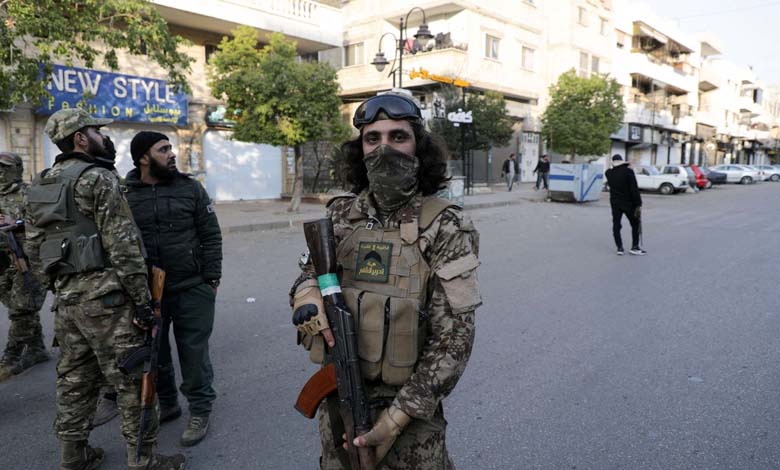UN Report Denies Any Link Between Damascus and Al-Qaeda

A yet-to-be-published United Nations report indicates that UN sanctions monitors have not identified any “active relationships” this year between Al-Qaeda and the body currently leading Syria’s transitional government. The report could bolster anticipated U.S. efforts to lift UN sanctions on Syria. It is expected to be released later this month.
-
Hama Countryside: Massive Syrian Army Reinforcements and “Mass Fleeing” of Militants
-
Aleppo Clashes: Syrian Army “Cleanses” Several Areas and Prepares for a Counterattack
Hayat Tahrir al-Sham (HTS), which heads the transitional government, was formerly Al-Qaeda’s affiliate in Syria. It formally severed ties with the group in 2016. Previously known as Jabhat al-Nusra, HTS led the rapid offensive that ousted former president Bashar al-Assad in December. Its leader, Ahmad al-Sharaa, is now Syria’s transitional president.
The report comes as diplomats expect the United States to push for the lifting of UN sanctions against HTS and Sharaa, who has declared his intention to build an inclusive democratic Syria.
-
Betrayal and Corruption Plague Syrian Opposition Army
-
Al-Sharaa Pledges to Form an Inclusive Government in His First Speech to Syrians
According to the UN report, “several executive-level individuals hold more extreme views than Sharaa and Interior Minister Anas Khattab, who are generally seen as prioritizing pragmatism over ideology.” The report covers the six months ending June 22 and is based on contributions and assessments from UN member states.
HTS has been under UN sanctions since May 2014, including asset freezes and a global arms embargo. Several of its members, including Sharaa—sanctioned since July 2013—are subject to travel bans and asset freezes.
-
Security Chaos Returns to Syrian Regions… Hayat Tahrir al-Cham Members Top the List of Accused
-
Washington Navigates the Syrian “Minefield”
UN monitors wrote: “Some member states voiced concern that many HTS members and affiliated individuals, particularly those integrated into the new Syrian army, remain ideologically aligned with Al-Qaeda.”
In May, U.S. President Donald Trump announced a major shift in policy by lifting U.S. sanctions on Syria. He signed an executive order to that effect in late June, and the U.S. removed HTS from its list of foreign terrorist organizations this week. Washington stated this move aimed to advance Trump’s vision of a stable and unified Syria.
A U.S. State Department spokesperson said the U.S. “is reviewing remaining terrorism designations related to HTS and Syria, as well as their UN sanctions listings.”
-
Israel targets Hezbollah on Syrian and Lebanese fronts
-
“Al-Joulani’s Plans”: Abolishing Mandatory Military Service and Undermining Syrian Kurds
Diplomats, NGOs, and regional analysts argue that lifting sanctions would help rebuild Syria’s shattered economy, steer it away from authoritarianism, and reduce the appeal of extremist groups.
Trump and his advisers contend that this shift serves American interests by opening opportunities for U.S. businesses, countering Iranian and Russian influence, and potentially decreasing the need for U.S. military intervention. However, Washington faces diplomatic hurdles in garnering UN Security Council support.
Diplomats note that U.S. efforts will also require backing from Russia—Assad’s key ally—and China to ease sanctions through the UN.
-
Lebanon: Hezbollah forces Syrian women to manufacture, smuggle drugs
-
New U.S. Plan to Fund the SDF Signals Rising Tensions with Turkey
Both Beijing and Moscow remain deeply concerned about the presence of foreign fighters within HTS. UN experts estimate that more than 5,000 foreign fighters remain in Syria.
The issue of foreign fighters is one of the most complex challenges to Western engagement with Syria. Still, the U.S. has approved a plan by Syria’s new leadership to incorporate some of them into the national army.
Last month, Chinese UN envoy Fu Cong warned the Security Council that Syria’s transitional authorities must fulfill their counterterrorism obligations. He emphasized the need to combat groups like the East Turkestan Islamic Movement, also known as the Turkistan Islamic Party, which includes Uyghur fighters from China and Central Asia. Human rights groups have accused Beijing of widespread abuses against this Muslim ethnic minority.
-
U.S. Troop Reduction in Syria Puts SDF in Disarray
-
Did Al-Sharaa Demand U.S. Protection to Attend the Arab Summit in Baghdad?
Russian UN envoy Vassily Nebenzia stressed that “the Syrian army and police must consist solely of professional, untainted personnel,” clearly referencing irregular militias and armed factions.
UN observers noted that some foreign fighters rejected the idea of joining the new army. They reported internal splits among those who view Sharaa as having betrayed revolutionary ideals, raising the risk of internal conflict and making Sharaa a potential target.
-
Have Foreign Fighters Become a Burden on the New Syria?
-
ISIS Threatens al-Sharaa… Can the Group Still Operate in Syria?












